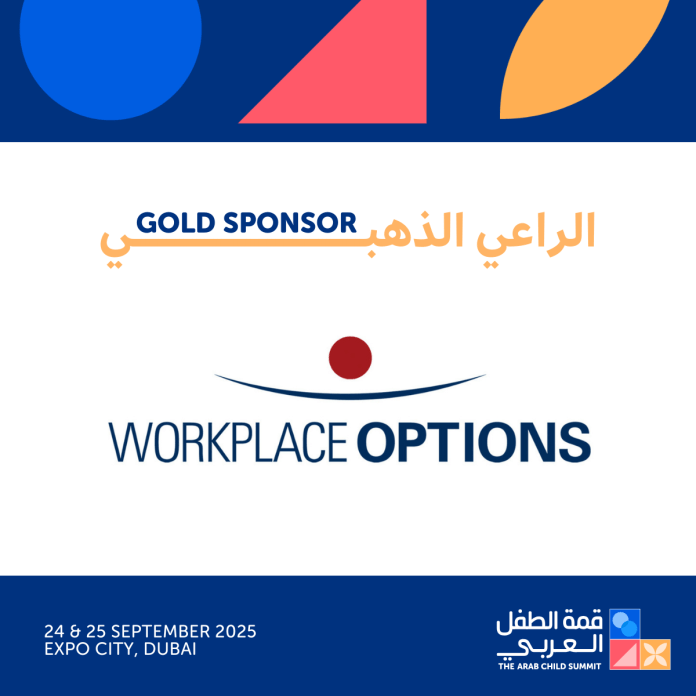
Dubai will host the second edition of the Arab Child Summit on 24th and 25th September 2025 at the Connect Conference Centre in Expo City, Dubai, in alignment with the United Arab Emirates’ clear vision to support Arab children and strengthen the family and educational ecosystem in the region, contributing to the upbringing of proud Arab children who can thrive in a global society.
The second edition of the summit comes after the great success of its first edition in 2024, which witnessed wide participation from across the Arab region, and was described by attendees as an “exceptional platform” and a “starting point for real transformations in Arab educational discourse and in how we raise our children.”
Building on this momentum, the summit returns in its second year with an expanded program and a larger audience, supported by leading educational and cultural institutions that believe in the importance of Arab identity, language, and expertise in shaping the future of children and families.
In line with its commitment to supporting families, Workplace Options is participating as a Gold Sponsor, helping to spotlight the importance of child wellbeing and resilience.
Commenting on the upcoming event, Marianne Khlat, clinical psychologist and paediatric care case manager at WPO, said: “Workplace Options is proud to support the Arab Child Summit. This event is an opportunity to highlight the importance of supporting Arab children and families in ways that strengthen both cultural identity and resilience for the future. Through our Child and Family Wellbeing Program, we help organizations extend care beyond the workplace, ensuring that employees and their families have access to resources that nurture mental health, inclusive education, and family cohesion. Healthy, resilient families are the cornerstone of strong communities, and we are honoured to contribute to this important regional dialogue.”
This year’s summit is expected to attract more than 900 participants including parents, experts, educators, academics, and policy makers. Over two full days, the summit will host more than 40 panel discussions, workshops, and seminars led by prominent Arab specialists in the fields of education, childhood, media, technology, and cultural identity. Together, these sessions offer a unique opportunity to explore essential questions facing Arab children today, to formulate collective visions that honour Arab values and culture while anticipating the future with practical and thoughtful steps.
The founders of the Arab Child Summit, Reem Madkour, Deema Al Alami, and Nabih Al Hajji, explained that “the Arab Child Summit is not merely an annual event, but a collective Arab dialogue platform. It calls for rethinking the form and substance of Arab childhood, anchoring concepts in identity, belonging, and knowledge, and striving to be an effective tool for empowering a generation that is deeply rooted in its culture, open to the world, and equipped with the tools of our time.”
The second edition of the summit will focus on pivotal issues shaping childhood in Arab societies, including family cohesion, child development, culture and spirituality, and the impact of technology. It will emphasize the role of cultural identity and the Arabic language in nurturing authentic Arab values, while promoting a balanced openness to the values of global citizenship. The summit will also tackle the growing challenges of technology, such as artificial intelligence, digital safety, and screen time, and the new responsibilities these place on parents and educators, with a strong focus on building community-wide awareness of these pressing concerns.
This year’s summit is supported by Platinum sponsorship from GEMS Education, the Official Education Partner of the Arab Child Summit, along with strategic partnerships including the Abu Dhabi Early Childhood Authority as Strategic Policy and Child Well-being Partner, the Emirates Literature Foundation as Strategic Literary Partner, Sowt as Media Partner, Strategy& as Strategic Knowledge and Insights Partner, and Art Jameel as Strategic Culture Partner. To amplify its social and humanitarian impact, the summit has also announced a partnership with Dubai Cares, a UAE-based global philanthropic organization, to serve as the Official Charity Partner of the Arab Child Summit. This step reflects the alignment between the summit and Dubai Cares’ mission in supporting education and sustainable development, thereby expanding the circle of impact and reaching more children and families locally and regionally.
In parallel, the summit will host an exhibition featuring more than 20 Arab companies and institutions offering innovative solutions in education, childhood technology, developmental products,, and the arts. This will provide attendees with the opportunity to explore practical experiences and pioneering initiatives in the field, opening new doors for collaboration between different stakeholders.
About the Arab Child Summit
The Arab Child Summit is a grassroots community initiative that aims to enhance knowledge, identity, and Arab values in parenting and education. It seeks to build a vibrant, purpose-driven community where Arab expertise shapes collective solutions and drives transformative change. The summit was founded as an independent initiative by Reem Madkour, Deema Al Alami, and Nabih Al Hajji, with the aim of creating a platform focused on raising and empowering Arab children, and prioritizing their educational, psychological, and cultural issues in the public sphere. The founders affirm that the summit does not seek to simply follow global trends, but rather to present an alternative vision rooted in cultural references and family and social values distinctive to Arab societies, while applying rigorous scientific practices drawn from the best contemporary educational approaches. The summit pays particular attention to children’s development on psychological, educational, and social levels, including mental health and wellbeing, promoting inclusive education, and ensuring equality of opportunity for all children, including those with special needs. It also seeks to highlight and scale successful and inspiring Arab models so they can be adapted into public policies across the region.



